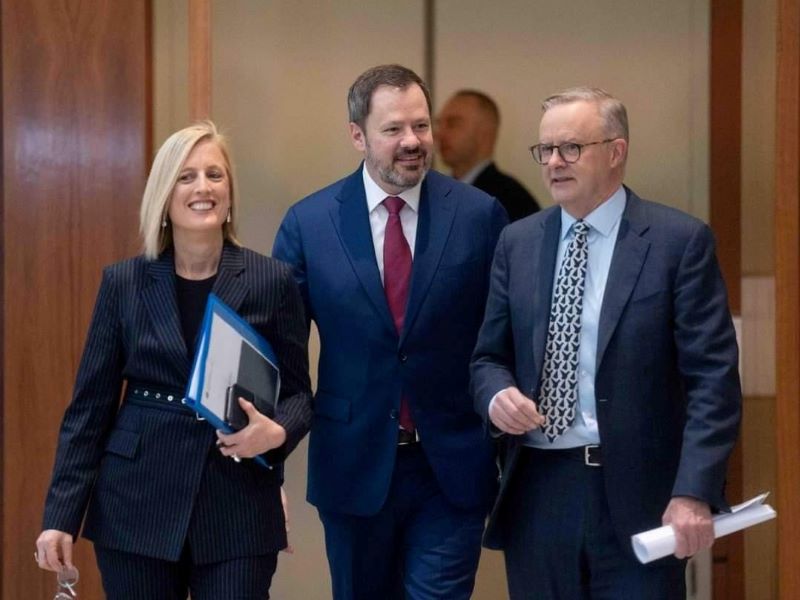Industry minister Ed Husic won’t publicly rule anything in or out of his negotiations with the Greens and crossbench, whose support he needs to pass the National Reconstruction Fund legislation, the Albanese Government’s $15 billion flagship industry policy.
“Patient progress” is being made in the talks and he remains quietly confident of getting the legislation for the National Reconstruction Fund (NRF) through both houses of Parliament, which would set up a corporation to provide $15 billion in loans, guarantees and equity investments to areas of national priority.
But the Coalition had “dealt themselves out” of a “nation building” piece of work by earlier this month flatly rejecting the NRF, Mr Husic told InnovationAus.com on Monday.

“We want people from all corners of the Parliament to be able to have a sense of ownership about the fund, and it’s why I’m staggered that the Coalition out of the blue decided to vote against it,” Mr Husic said.
“They’ve dealt themselves out, but in the interim, I’ve worked with and sat with crossbenches in the Lower House.”
Without the Opposition, Mr Husic needs the support of the Greens and two independent senators to get a bill to establish the NRF through the Senate, but not necessarily the cross-benchers in the Lower House.,
“It’s not just about the government getting the numbers and just ramming stuff through. It’s a collaborative, working with people approach to get on board ideas and viewpoints about how we can improve things,” Mr Husic said.
The Greens are seeking changes in government policy to secure its support for the NRF, asking that government rule out funding support for any new fossil fuel projects.
Mr Husic said the NRF backing new fossil fuel projects would go against the government’s “philosophy” for the fund and its emissions targets, which have factored in the funds planned support for emissions reduction and low emission technologies.
The NRF has set aside up to $3 billion for renewables and low emissions technologies, while billions more is planned for technologies, manufacturing and value adding resources which could support decarbonisation.
“We can’t have the NRF do things that run counter to our determination to reach our emissions reduction targets,” he said.
“And so some of the things that have been raised, I just don’t see as necessarily flying under a National Reconstruction Fund arrangement. It’s just counter to the philosophy that the Prime Minister thought about when we announced the Reconstruction Fund.”
Mr Husic said the government is “working through” a proposal to have the NRF explicitly rule out support for fossil fuel projects, as was put into the Clean Energy Finance Corporation Act a decade ago to protect against changes in governments and their philosophies but noted it is a different prospect for the wider remit of the new fund.
“There are some challenges in doing that with the National Reconstruction Fund as opposed to what you do with the Clean Energy Financing Corporation because CEFC has got a very dedicated focus,” he told InnovationAus.com.
The strong protections in the CEFC Act, which came to be known as the ‘Abbot proof fence’, helped stop the Coalition from directing the Gillard government’s green bank to invest in fossil fuel projects.
“We’re taking that on board. We’re working through it. There are some challenges in terms of what they’re putting forward, but I don’t want to rule stuff in or out,” Mr Husic said.
“I’m approaching this genuinely in the spirit of collaboration and want to be able to work that through because, frankly, that’s what people voted for in May last year.
“They want the parliament to stop the bickering and all the fighting, and they do want us to focus on reducing emissions. They do want us to focus on increasing jobs because there is a huge jobs opportunity.
“We’ve just got to get on with it but not in the way that we’ve seen for ages where it seemed like there was a bigger rush to pick a fight than working out a solution.”
Do you know more? Contact James Riley via Email.

